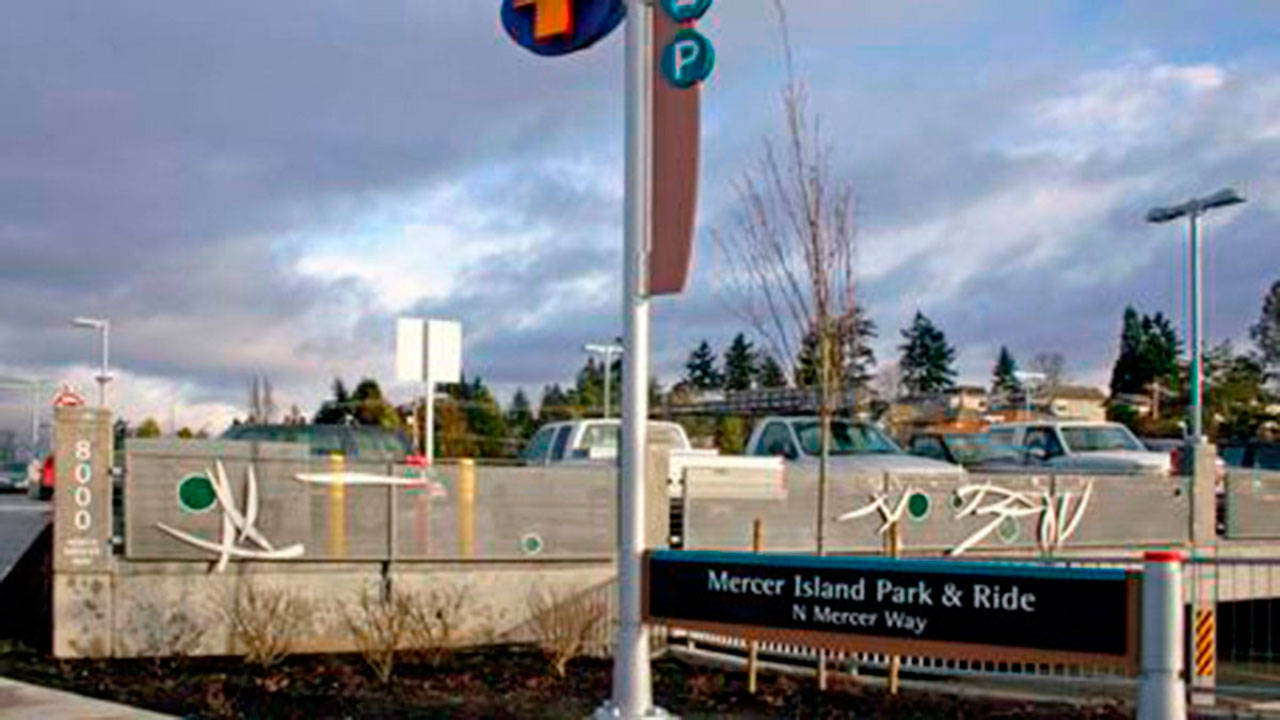Mercer Island is launching into the rideshare business, as the City Council voted unanimously on March 20 to sign agreements for a six month pilot project with providers Lyft and Uber.
The goal is to improve access to transit and provide a first-last mile solution for Islanders, with subsidized rides between the Sound Transit Mercer Island Park and Ride and a location on Mercer Island.
The city has heard that many residents don’t use transit because the 447 spots in the Park and Ride fill up by 7 a.m., and is trying to enhance mobility by giving weekday commuters the option to reach the Park and Ride, without needing to drive and park a Single Occupant Vehicle (SOV).
“We know how frustrating it is to find the Park and Ride filling ever earlier, so we’re very pleased to be able to offer this option to the commuting public. It is good to see something innovative coming out of the Sound Transit Settlement Agreement, and we’re embracing the opportunity to investigate the future of transportation with this pilot project,” Mayor Debbie Bertlin said in a press release.
The pilot project will operate Monday-Friday, 24 hours per day, beginning April 23 (in celebration of Earth Day) and concluding on Oct. 31. For the first three months, riders will be charged a flat fee of $2 per ride, which will rise to $2 for a shared ride and $5 for a solo ride for the next three months.
Another goal is to gather data about residents’ interest and willingness to try alternative mobility solutions and options. The rideshare companies have agreed to provide the following information regarding the rides provided on Mercer Island under this project: number of rides by day of the week; time of ride in hourly increments; shared or solo ride; and origination/destination by zone or quadrant.
The city and the rideshare company will split the cost of the ride. Each rideshare provider will contribute $10,000 to the city to match funding derived from an October 2017 settlement agreement with Sound Transit.
The $10.1 million settlement was intended to offset the impacts of light rail construction and operation, and also partially compensate for permanent impacts to local traffic patterns, including the loss of access to westbound I-90 from the Island’s only 4-lane arterial (Island Crest Way), according to the press release. Up to $226,900 of the settlement can be applied toward identifying and implementing first-last mile solutions, such as ridesharing services.
The city will also continue to actively explore other pilot mobility programs such as bikeshare and carpooling services, each of which would provide access to transit options and reduce SOV dependency.
Bertlin noted the enthusiastic comments from the survey, which generated 270 respondents, 45 percent of whom were willing to try the pilot program, with another 29 percent wanting additional information to make their decision.
Similar to the city’s recent 10-day online mobility survey regarding willingness to try rideshare services, staff also plan a survey on interest in bikeshare and other related issues to help fine-tune any potential pilot.
In making its decision, the city council cited the strong interest shown by the community, the ability to experiment with cutting-edge alternatives and the opportunity to gather performance data that will inform future innovative solutions.
“Since day one, Lyft has been committed to reducing individual car ownership and making it easier for people to get around their cities,” stated Todd Kelsay, Lyft’s Pacific Northwest General Manager. “Part of that commitment is being a valuable part of the transportation ecosystem in communities like Mercer Island. We’re thrilled to be part of the Mercer Island Park & Ride pilot and applaud the City for its creative and thoughtful approach to rethinking suburban mobility.”
The rideshare providers are committed to reaching out to many segments of the community to make sure that seniors, those without smartphones, and inexperienced rideshare users — along with rideshare veterans — are able to participate.
“We are committed to helping cities move people in an environmentally friendly way through fewer, fuller vehicle trips,” said Alejandro Chouza, Uber General Manager for the Pacific Northwest. “The city of Mercer Island’s pilot program will leverage Uber’s technology to better connect riders to regional mass transit. We are grateful to the city of Mercer Island for their partnership and can’t wait to get started.”
Learn more about other commuter options, and alternatives to SOV use, at www.mercergov.org/CommuterResources.
For more information, contact:
-Ross Freeman, City of Mercer Island Sustainability Manager ross.freeman@mercergov.org
-Hannah Gwazdauskas, Lyft Spokesperson, hgwazdauskas@lyft.com
-Nathan Hambley, Uber Spokesperson, nhambley@uber.com


